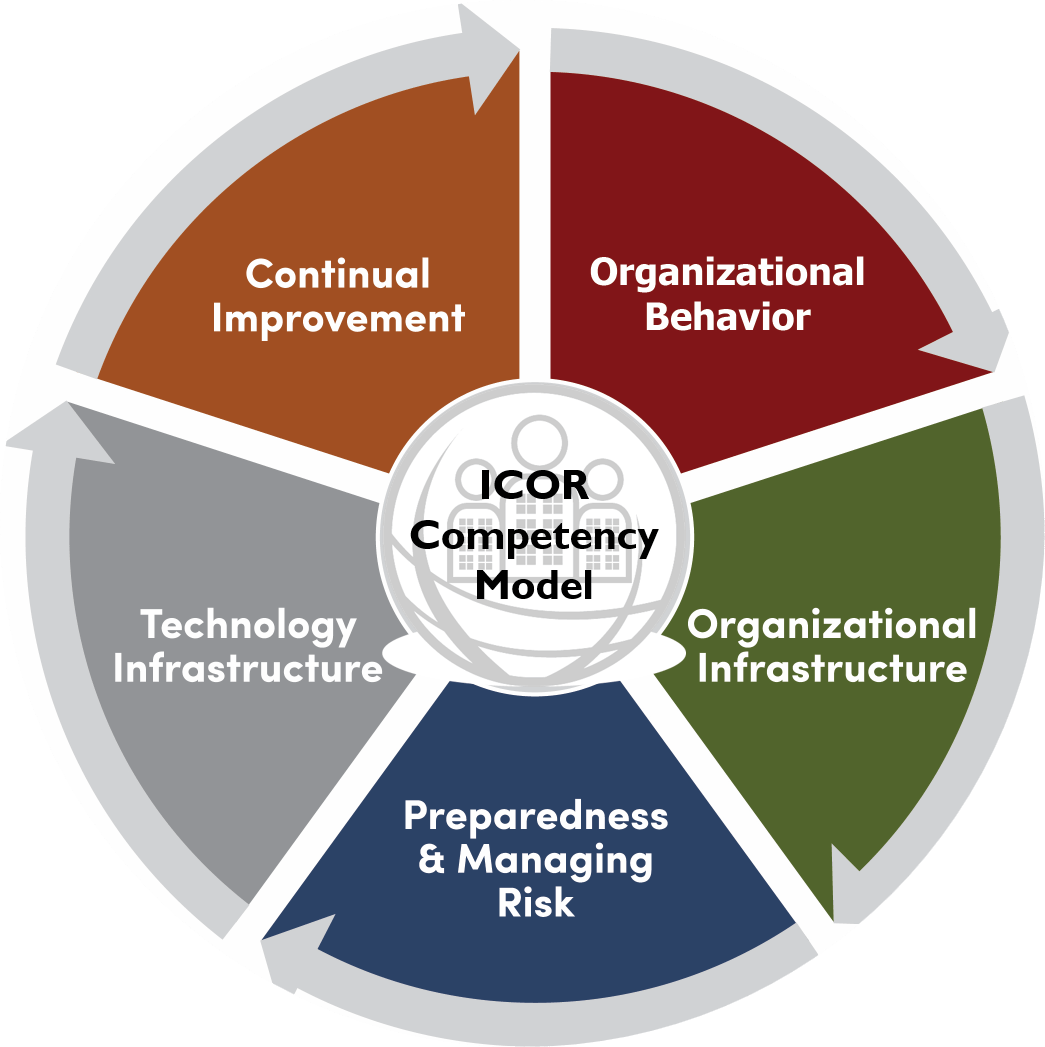Competencies to Lead
The ICOR Organizational Resilience Competency Model identifies what it takes to be a Leader in Organizational Resilience—across the performance continuum; around the globe; and across all career levels, job roles and job functions.
It identifies 25 core competencies to be a leader in Organizational Resilience and answers the question:
“What do you need to know to increase the resilience of your organization?”
The Organizational Resilience Competency Model
- Defines the competencies and knowledge necessary for those designated to intentionally increase the resilience of organizations.
- Supports OR practitioners in their career and professional development.
- Helps organizations build approaches to identify and cultivate high- quality OR leaders, individual contributors, and teams.
The ICOR Competency Model is comprised of 5 Clusters. Each Cluster is comprised of 5 Competency Areas.
To become certified by ICOR in Organizational Resilience, applicants must demonstrate competence in a minimum of 15 competency areas.






Cluster 1
Organizational Behavior
Ensures that the behavior of the organization – how its people interact with each other and with others – enables it to operate more effectively.
COR.1 Organizational Resilience Policy & Strategies
COR.2 Attributes of More Resilient Organizations
COR.3 Behaviors of More Resilient Organizations
COR.4 The Impact of Culture on an Organization’s Resilience
COR.5 Leading During Times of Change & Uncertainty
Cluster 2
Organizational Infrastructure
Ensures that the organization has an agile and flexible infrastructure upon which the basis of its services are delivered and which allows it to manage with continuous change.
COR.6 Operating as an Agile Organization
COR.7 The Resilient Organizational Structure & Managing Change
COR.8 Building a Resilient Workforce
COR.9 The Agile Workplace
COR.10 Resilient Facilities
Cluster 3
Preparedness & Managing Risk
Ensures that the organization is prepared to manage the unexpected and intentionally manage risk.
COR.11 Risk Management Principles and Practices
COR.12 Unified Incident Response
COR.13 Crisis Management & Communications
COR.14 Business Continuity Management
COR.15 Supply Chain Resilience
Cluster 4
Technology Infrastructure
Ensures that the critical environments used to house computer systems and to protect data and the associated technology systems are protected and able to operate under all conditions.
COR. 16 Critical Environments
COR. 17 Information & Communication Technology
COR. 18 Storage & Availability Systems
COR.19 Information & Cyber Security Systems
COR.20 Information & Cyber Security Compliance
Cluster 5
Continual Improvement & Innovation
Ensures that the organization implements an ongoing effort to improve the management of products, services, and processes enabling it to innovate and transform.
COR.21 Increasing Resilience by Exercising & Testing
COR.22 Knowledge & Information Systems
COR.23 Measuring Resilience
COR.24 Promoting Innovation & Transformation
COR.25 Impact of Community on Organizational Resilience


